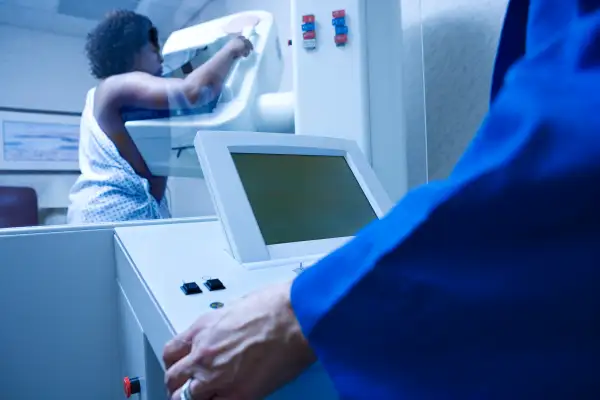How to Manage the High Costs of Breast Cancer

Molly MacDonald was transitioning to a new job in 2005 when she was hit with some unexpected news: She had breast cancer, and would have to undergo operations and radiation treatments, stat.
Thankfully, the disease was caught at an early stage. But after six months of treatments during which she couldn’t work, MacDonald says the financial reality of her situation was, to put it lightly, bleak. She was paying $1,200 per month in insurance premiums and her home went into foreclosure. She even started cutting her children’s hair to save on costs. Eventually, the family found itself in line at the local food bank.
“I was thinking we are going to join the ranks of the homeless, ” MacDonald says. “I felt really hopeless.”
MacDonald's dire situation illustrates what a lot of women who get diagnosed with breast cancer have to deal with: A massive influx in costs that treatment requires. According to research from The Pink Fund, an organization MacDonald launched that gives financial support to breast cancer patients to meet basic needs while they’re in treatment, 50% of personal bankruptcies are the result of an illness or illness-related job loss.
While cancer is an extremely costly disease to treat—even with insurance—there are ways to manage it. Should you or a loved one have a breast cancer diagnosis, here's what you need to know.
Manage Your Insurance Costs
Experts estimate treatments can cost hundreds of thousands of dollars, not counting the income lost from not working or other expenditures like transportation to and from treatment centers. And despite the physical and emotional strains patients and their families undergo, there is little time to waste to get your finances in order. Here are some steps you should take:
- Ask a financial counselor at the hospital what the co-pays are, and see if they can be negotiated.
- Don't just pay every bill that you're sent—go over each with a fine-tooth comb. Look for double billing, and check each bill for the correct name, address, and insurance codes.
- Ask the hospital if you can set up a payment program if you can't pay the bills off all at one time (this is especially important so your bills don't go into collections).
- Keep copies of all of your bills, and record the name and phone number of every person you talk to throughout the process.
- Look into income-based aid programs.
Choose the Right Insurance Plan
Because of the Affordable Care Act, cancer patients cannot be denied insurance coverage. If you are switching plans or shopping for a new one during open enrollment, the National Coalition for Cancer Survivorship advises to double check that your new plan covers all of the services you will need, and that your doctor is still in-network. Additionally, here are some other things to keep in mind:
- Some plans have different deductibles for different services, such as hospitalization and drug coverage.
- Make sure you know your insurer's time limit for submitting claims. And if your claim is denied, "always ask if the payment was denied due to a billing or clerical error first," the NCCS advises. Resubmit, and keep all of your paperwork.
- If you're having trouble, you can get help through Consumer Assistance Programs, which are run by the states, and assist consumers with their insurance questions. They can help you file an appeal if your insurance claim is denied.
- Also of note: If you're making federal student loan payments, those can be deferred (some private lenders also allow you to defer payments).
Manage Your Prescription Costs
For breast-cancer survivor Maryann Small, prescription drug costs were particularly hard to pay for. After undergoing operations, chemotherapy, and radiation, she still needed to take an aromatase inhibitor which cost $1,100 every 90 days at her local pharmacy.
Like MacDonald, Small says “on paper” her family looked too wealthy to qualify for financial support. But in reality, her finances had reached a breaking point. “We were just starting to get back on our feet again, and I literally just put my head on my desk and started crying,” she says.
Small used FamilyWize, a free program that negotiates drug prices with pharmacies, and then locates those with the lowest prices for consumers. She says her prescription costs decreased from $1,100 every 90 days to $400. GoodRx is another option that compares prices and offers coupons. When it comes to prescriptions, remember:
- The same prescription can have different costs at different pharmacies, even with the same insurance. So it's best to shop around. Call different pharmacies in your area and ask for prices.
- You can also talk to your doctor, pharmacy, social worker, or health insurance provider to learn about local organizations that offer aid.
- Always check with your doctor or pharmacist to see if there's a generic or equivalent prescription available that's cheaper.
